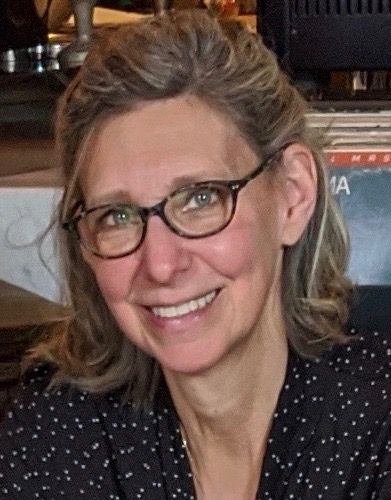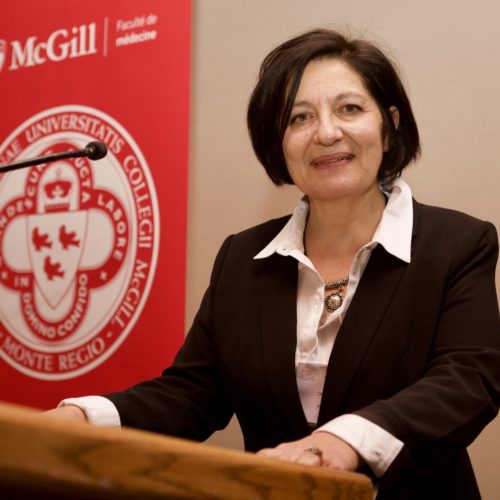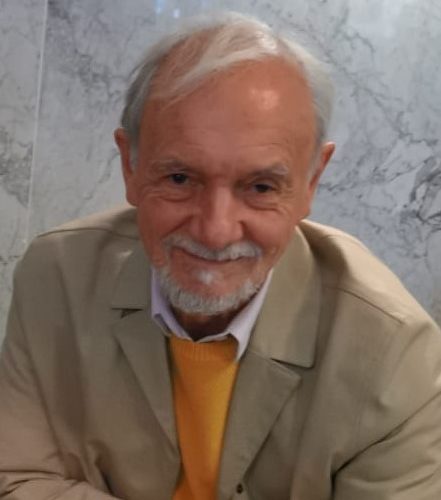Host-Microbe interactions in Health and Disease

Corinne Maurice
Stream DirectorDr Corinne Maurice is an Assistant Professor in the Department of Microbiology and Immunology at McGill University, a Tier 2 Canada Research Chair in gut microbial physiology, and an Azrieli Global Scholar. Her work aims to identify how to manipulate the human gut microbiome for health benefits, by characterizing the active bacterial subset of the human gut microbiome and determining how bacteriophages regulate it. Her expertise in single-cell tools and metagenomics have allowed her to pioneer the FACSeq method, whereby bacterial cells with distinct activity or damage can be sorted and sequenced to better characterize functional changes in this dynamic community. By applying microbial ecology concepts and tools to the study of bacteria and phage interactions, her group is currently exploring the role of bacteriophages in health, child stunting, and adult IBD.

Samantha Gruenheid
Executive comm.Dr. Samantha Gruenheid, PhD, is an Associate Professor, Department of Microbiology and Immunology, McGill University and a FRQS Senior Chercheur-Bousier. Her expertise is in the field of host-pathogen interactions, with a particular focus on intestinal infections. Dr. Gruenheid investigates bacterial virulence mechanisms and host responses to infection. Applying a genetic approach to infection with the mouse intestinal pathogen C. rodentium, her group recently discovered a new link between intestinal infection/inflammation and the regulation of tissue homeostasis by Wnt signaling. Her lab has also made important contributions towards the elucidation of the cell biology underlying virulence mechanisms of pathogenic E. coli.

Martin Olivier
Executive comm.Dr. Martin Olivier, PhD. The Laboratory of Martin Olivier (Departments of Medicine, Microbiology/Immunology) focuses on understanding how pathogens for major global infectious diseases (Malaria, Leishmaniasis, Trypanosomiasis, Phleboviruses) can influence the host innate inflammatory response by manipulating the biochemical cascades involved in the regulation of phagocyte functions. Using in vitro and in vivo infectious models we are investigating how extracellular vesicles (e.g. exosome) released by protozoan parasites in culture or within their blood-sucking vectors contribute to facilitate the infection and its propagation within the mammalian host. In addition, impact of virus/Leishmania co-infection on cutaneous leishmaniasis development and the immunological events underlying this co-infection is studied using various KO mice for major innate immune response sensors (TLR2/RIG-I/MAVS). Using our exosome biology expertise, we are interested to isolate and characterize those vesicles from various biological fluids of human affected by malaria, visceral leishmaniasis and tuberculosis. Therefore, permitting to better understand the pathologies of these infections and to develop exosome-based biomarker diagnostics and vaccines for those infectious agents. Finally, my lab is actively developing and testing new molecules capable to induce or inhibit host protein tyrosine phosphatases to block inflammatory-based pathologies or to modulate protective immune response against infectious agents.

Danielle Malo, DVM
Dr. Danielle Malo, MV, PhD, is a veterinarian and a Professor in the Departments of Medicine and Human Genetics, and a founding member of the McGill University Research Centre on Complex Traits (MRCCT). She is the co-Director of The Centre for Phenogenomics (TCP) Infection and Inflammation Core at McGill University (https://www.mcgill.ca/mrcct/tcp-infection-inflammation-core ) and the co-Director of the McGill containment level 3 platform. She uses mouse models of infection and genetic platforms to discover and characterize genes and pathways that control the host response to intracellular pathogens. She discovered and characterized the function of several innate immune genes in response to Salmonella and Mycobacterium tuberculosis infections, among those Toll-like receptor 4 (TLR4), Ubiquitin specific protease 18 (USP18) and CYFIP Related Rac1 Interactor B (CYRIB). More recently she was involved in the activation of SARS-CoV2 research at McGill.

Salman Qureshi
Dr. Salman T. Qureshi, MD, is an Associate Professor, Department of Medicine and Research Director at the Meakins-Christie Laboratories as well as an attending physician in the Department of Critical Care and medical director of Adult Respiratory Therapy at the McGill University Health Centre. He is a recipient of a Tier 2 Canada Research Chair in Host Response to Respiratory Infections. He uses forward genetic strategies to identify and functionally characterize the molecular determinants of susceptibility to pathogenic fungi, bacteria, and viruses that infect the lung including the identification of several loci that mediate host defense against Cryptococcus neoformans. He contributed to the initial development of an ENU mutagenesis program platform at McGill to probe host susceptibility to infectious diseases. The overall aim of his research program is to lay a foundation for the development of targeted therapies of human infectious and inflammatory disorders.

Silvia Vidal
Co-DirectorSilvia Vidal, PhD, is a Professor, Department of Human Genetics, McGill University and an Associate Member of the Department of Microbiology and Immunology, and is Director of the CTG. She holds a Tier 1 Canada Research Chair in Host Responses to Virus Infections and is the recipient of the Premier’s Research Excellence Award. She uses mouse genetic platforms to discover and functionally characterize the molecular interface between pathogenic viruses, inflammation and immunity. Her laboratory made inroads in characterizing mechanisms of self/non-self discrimination by NK cells during viral infection and pathways that control inflammatory responses during coxsackieviral myocarditis and influenza pneumonia. She has also developed an internationally recognized program in ENU mutagenesis and infectious diseases. Vidal’s program has spearheaded a number of projects and collaborations with academia and industry at McGill and abroad on gene discovery in human infectious and inflammatory disorders.

Bastien Castagner
Dr. Bastien Castagner obtained a Ph.D. in Chemistry at Columbia University in New York in 2004. His postdoctoral years were spent at ETH Zürich from 2005 – 2008. From 2009 – 2014 he was a Group Leader in the Institute of Pharmaceutical Sciences at ETH Zürich. He joined the Department of Pharmacology & Therapeutics at McGill in 2014 and was promoted to the rank of Associate Professor in 2020. His research focuses on the design of small-molecules and natural product analogues as novel drug candidates. He is especially interested in the chemistry and biology of inositol phosphates and carbohydrates. His group has been involved in novel strategies to inactivate the toxins responsible for the pathogenesis of Clostridioides difficile. He is also interested in the human gut microbiota and how molecules can impact its composition and metabolism, for the benefit of the host (us!).

Jayne Danska
Associate MemberJayne Danska, PhD, is the Anne and Max Tanenbaum Chair in Molecular Medicine, a Senior Scientist at the Hospital for Sick Children, and a Professor, Departments of Immunology and Medical Biophysics, Faculty of Medicine, University of Toronto and . She has made contributions to understanding immunological, genetic and environmental causes of Type 1 diabetes (T1D), molecular mechanisms of acute lymphoid leukemia (ALL), and innate immune surveillance of leukemia. She leads large-scale projects applying genetic, genomic and immunological analysis to identify T1D-risk genes and the role of the intestinal microbiome as a modifier of risk for immune-mediated disease. Her group demonstrated that manipulation of the intestinal microbiome influences sex hormone levels metabolism and modifies a high burden of inherited risk in a mouse model of spontaneous T1D. Her work on identification of innate immune checkpoints and industry partnership led to development of a novel biologic inhibitor that performed well in early trials for hematologic malignancies. In 2021, the checkpoint inhibitor was acquired by Pfizer to advance into phase 3 trials in multiple malignancies.

Kevin Kain
Associate MemberKevin Kain, MD, FRCPC, is a Professor of Medicine, University of Toronto; the Director, SAR Laboratories, Sandra Rotman Centre for Global Health; Science Director, Tropical Disease Unit at UHN-Toronto General Hospital; and holds a Canada Research Chair (Tier I). Dr. Kain’s research efforts are focused on new diagnostics and interventions for major global infectious disease threats including malaria, sepsis and HIV, particularly as they pertain to maternal-child health. Dr. Kain is the recipient of the C. Woolf Award for the Excellence in Teaching from the University of Toronto, a Career Scientist Award from the Ontario Ministry of Health, the Bailey Ashford Medal from the American Society for Tropical Medicine, awarded for “Distinguished work in tropical medicine”, and the SL Medal (from Mahidol University, Thailand) for “Outstanding achievements in malaria research”. Dr Kain was profiled by TIME magazine as one of “Canada’s Best in Medicine”. He has received the: Pfizer Visiting Professorship, University of Washington; Fred Barrett Lectureship, University of Tennessee; Distinguished Global Health Service Award, University of California; The Henry Wong Lectureship in Medicine, McMaster University; Forbes Lectureship, University of Melbourne. He has served as a consultant to many organizations including the Gates Foundation, WHO, Red Cross, CBS, PATH and the CDC.
Peer-reviewed Research Support: totals over $100,000,000. Peer reviewed Publications: over 375. Peer-reviewed Research Support: totals over $75,000,000. Peer reviewed Publications: over 300.

Momar Ndao
Associate MemberDr. Momar Ndao research focuses on bringing cutting edge science to diagnose infectious diseases, studying host-parasite interactions, screening drugs to be used as therapies for infectious diseases, developing vaccines to prevent parasitic diseases, and applying proteomic technology to discover biomarkers for infectious diseases. Increased awareness of parasitic infections has led to newly recognized parasites, emerging pathogens, and bioterrorism considerations. Therefore, the fields of diagnostic medical parasitology treatment and vaccines are undergoing dramatic change. His laboratory has interests in 1) diagnosis of parasitic diseases 2) the study of host-parasite interactions; 3) screening drugs to be used as therapies for protozoan parasitic disease; 4) developing vaccines to prevent parasitic diseases and 5) applying proteomic technology to discover biomarkers for infectious diseases.

Anavaj Sakuntabhai
Associate MemberAnavaj Sakuntabhai, MD, and Professor at the Institut Pasteur, Paris where he was recruited in 2000 to develop a program on the genetics of infectious diseases. He discovered a variant on a promoter of DC-SIGN associated with gene expression and outcome of Dengue virus infection. He published an important finding of positive selection of G6PD (glucose 6 phosphate dehydrogenase) and its effect on Plasmodium vivax density in Science. His recent research has shown that both gene-gene and gene-environmental interactions play a significant role in susceptibility to malaria and Dengue fever. He successfully coordinated two important projects on genetic susceptibility to malaria and dengue involving teams from France, Thailand, and Senegal. He coordinated a global network for Dengue fever research for the Institut Pasteur International Network. He proved that asymptomatic dengue infected individuals could transmit the virus to mosquito vector, which have huge impact on dengue surveillance and control. In addition, He found that T cells are highly activated in asymptomatic as compared with symptomatic infections. The last two findings lead to a new concept of monovalent dengue and Zika vaccine development. He has significant experience in coordination of international programs, having been coordinator of European FP7 project on Dengue Framework for Resisting Epidemics in Europe (DENFREE). He was involved in investigating two recent global outbreaks of infectious diseases, Ebola and Zika. Currently, he is a leader of the Pasteur International Center for Research on Emerging Infectious Diseases (PICREID) – a multi-million dollars program supported by the NIH. The project is implemented West, Central Africa and South-East Asia, linking large observational multicenter cohort studies with basic scientific research and leading to increased preparedness for new epidemic threats in the region. Recently, he was appointed as the director of Institut Pasteur Japan office to establish transdisciplinary network on Emerging Infectious Diseases between Japan, France and countries in Indo-Pacific region.

Erwin Schurr
Associate MemberErwin Schurr obtained his Ph.D. in 1986 from the Institute of Biophysics and Radiation Biology at the Albert-Ludwigs University in Freiburg/Br, Germany. He then did his postdoctoral studies in molecular genetics with E. Skamene and P. Gros at McGill University. In 1991, he joined the McGill Centre for the Study of Host Resistance and the Faculty of Medicine at McGill as Assistant Professor. He is a Distinguished James McGill Professor of Human Genetics and Medicine at McGill University. At the Research Institute of the McGill University Health Centre he is the leader of the program on Infectious Diseases and Immunity in Global Health. His main research interest is the identification of host genetic factors predisposing to tuberculosis and leprosy; research that is supported by both national and international funding agencies. He has been involved in numerous field studies in main endemic countries, and he has published extensively on the human genetics and genetic epidemiology of both leprosy and tuberculosis.

Brian Ward
Associate MemberBrian Ward, PhD, is a professor of Medicine & Microbiology at McGill University, Deputy Director of the Research Institute of the McGill University Health Centre (Fundamental Science), Co-Director of the McGill Vaccine Study Centre and Associate Director of the JD MacLean Center for Tropical Diseases. His laboratory is currently active in three areas: 1) the immunologic evaluation of vaccines and vaccine safety, 2) the evaluation of micronutrient-microbial interactions, and 3) the development of novel therapeutic strategies for microbial pathogens. Although a good deal of the work performed in the laboratory takes place in Montreal, many of the projects have significant or even predominant components overseas. There is a long-standing commitment in the laboratory to collaborative work with developing world researchers in Peru and Zimbabwe. Dr. Ward serves on a wide range of government and industry advisory committees related to vaccines, vaccine safety, international health and parasitology.
